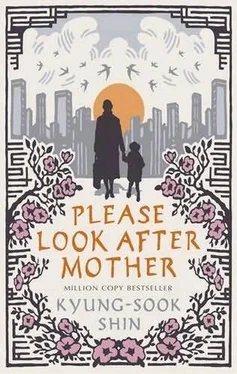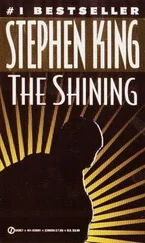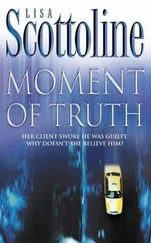Until last fall, you thought you knew your mom well-what Mom liked, what you had to do to appease her when she was angry, what she wanted to hear. If someone asked you what Mom was doing, you could answer in ten seconds: she’s probably drying ferns; since it’s Sunday, she must be at church. But last fall, your belief that you knew her was shattered. You went for a visit without announcing it beforehand, and you discovered that you had become a guest. Mom was continually embarrassed about the messy yard or the dirty blankets. At one point, she grabbed a towel from the floor and hung it, and when food dropped on the table, she picked it up quickly. She took a look at what she had in the fridge, and even though you tried to stop her, she went to the market. If you are with family, you needn’t feel embarrassed about leaving the table uncleared after a meal and going to do something else. You realized you’d become a stranger as you watched Mom try to conceal her messy everyday life.
Maybe you’d become a guest even before then, when you moved to the city. After you left home, your mom never scolded you. Before, Mom would reprimand you harshly if you did something even remotely wrong. From when you were young, Mom always addressed you as “You, girl.” Usually she said that to you and your sister when she wanted to differentiate between her daughters and sons, but your mom also called you “You, girl” when she demanded that you correct your habits, disapproving of your way of eating fruit, your walk, your clothes, and your style of speech. But sometimes she would become worried and look closely into your face. She studied you with a concerned expression when she needed your help to pull flat the corners of starched blanket covers, or when she had you put kindling in the old-fashioned kitchen furnace to cook rice. One cold winter day, you and your mom were at the well, cleaning the skate that would be used for the ancestral rites at New Year’s, when she said, “You have to work hard in school so that you can move into a better world.” Did you understand her words then? When Mom scolded you freely, you more frequently called her Mom. The word “Mom” is familiar and it hides a plea: Please look after me. Please stop yelling at me and stroke my head; please be on my side, whether I’m right or wrong . You never stopped calling her Mom. Even now, when Mom’s missing. When you call out “Mom,” you want to believe that she’s healthy. That Mom is strong. That Mom isn’t fazed by anything. That Mom is the person you want to call whenever you despair about something in this city.
Last fall, you didn’t tell her that you were coming down, but it wasn’t to free your mom from preparing for your arrival. You were in Pohang at the time. Your parents’ house was far from Pohang, where you arrived on an early-morning flight. Even when you got up at dawn and washed your hair and left for the airport, you didn’t know that you were going to go see Mom in Chongup. It was farther and more difficult to go to Chongup from Pohang than from Seoul. It wasn’t something you’d expected to do.
When you got to your parents’ house, the gate was open. The front door was open, too. You had a lunch date with Yu-bin back in the city the next day, so you were going to return home on the night train. Even though you were born there, the village had become an unfamiliar place. The only things left from your childhood were the three nettle trees, now mature, near the creek. When you went to your parents’ house, you took the small path toward the nettle-lined creek instead of the big road. If you kept going that way, it would lead you straight to the back gate of your childhood home. A long time ago, there was a communal well right outside the back gate. The well was filled in when modern plumbing was installed in every house, but you stood on that spot before entering the house. You tapped the sturdy cement with your foot, precisely where that abundant well used to be. You were overwhelmed with nostalgia. What would the well be doing in the darkness under the street, the well that had supplied water to all the people in the alley and still sloshed about? You weren’t there when the well was filled in. One day you went back for a visit and the well was gone, just a cement road where it had been. Probably because you didn’t see the well being filled with your own eyes, you couldn’t stop imagining that the well was still there, brimming with water, under the cement.
You stood above the well for a while, then went through the gate, calling, “Mom!” But she didn’t answer. The setting autumn sunlight filled the yard of the house, which faced west. You went into the house to look for her, but she wasn’t in the living room or in the bedroom. The house was a mess. A water bottle stood open on the table, and a cup was perched on the edge of the sink. A basket of rags was overturned on the floor mat in the living room, and hanging on the sofa was a dirty shirt with its sleeves flung apart, as if Father had just taken it off. The late-afternoon sun was illuminating the empty space. “Mom!” Even though you knew nobody was there, you called one more time, “Mom!” You walked out the front door and, in the side yard, discovered Mom lying on the wooden platform in the doorless shed. “Mom!” you called, but there was no reply. You put on your shoes and walked toward the shed. From there you could look over the yard. A long time ago, Mom had brewed malt in the shed. It was a useful space, especially after it was expanded into the adjacent pigsty. She piled old, unused kitchen supplies on the shelves she had mounted on a wall, and underneath there were glass jars of things she had pickled and preserved. It was Mom who had moved the wooden platform into the shed. After the old house was torn down and a Western-style house was built, she would sit on the platform to do kitchen work that she couldn’t easily do in the modern kitchen inside. She would grind red peppers in the mortar to make kimchi, sift through beanstalks to find beans and shuck them, make red-pepper paste, salt cabbage for winter kimchi, or dry fermented soybean cakes.
The doghouse next to the shed was vacant, the dog chain lying on the ground. You realized that you hadn’t heard the dog when you walked into the house. Looking around for him, you approached Mom, but she didn’t move. She must have been cutting zucchini to dry in the sun. A chopping board, a knife, and zucchini were pushed to the side, and small slices of zucchini were cradled in a worn bamboo basket. At first you wondered, Is Mom sleeping? Recalling that she wasn’t one to take naps, you peered into her face. Mom had a hand clutching her head, and she was struggling with all her might. Her lips were parted, and she was frowning so intently that her face was gnarled with deep wrinkles.
“Mom!”
She didn’t open her eyes.
“Mom! Mom!”
You knelt in front of Mom and shook her hard, and her eyes opened slightly. They were bloodshot, and beads of sweat dotted her forehead. Your mom didn’t seem to recognize you. Weighted with pain, her face was a miserable knot. Only some invisible malevolence could cause an expression like that. She closed her eyes again.
“Mom!”
You scrambled onto the platform and cradled your mom’s tortured face on your lap. You hooked your arm under her armpit, so that her head wouldn’t slide off your knees. How could she be left alone in this state? Outrage flashed through your conscience, as if someone had tossed her in the shed like that. But you were the one who had moved away and left your mom’s side. If one is deeply shocked, one cannot figure out what to do. Should I call an ambulance? Should I move her into the house? Where’s Father? These thoughts raced through your head, but you ended up gazing down at Mom lying across your lap. You had never seen her face contorted like that, so miserable, in such pain. Her hand, which was pressing down on her forehead, fell listlessly to the platform. Mom breathed laboriously, exhausted. Her limbs drooped, as if she could no longer exert the effort to try to avoid the pain. “Mom!” Your heart pounded. It occurred to you that she might be dying, just like this. But then Mom’s eyes opened calmly and trained themselves on you. It should have surprised her to see you, but there was nothing in her eyes. She appeared to be too weak to react. A while later, she called your name, her face dull. And she mumbled something faintly. You leaned in.
Читать дальше











